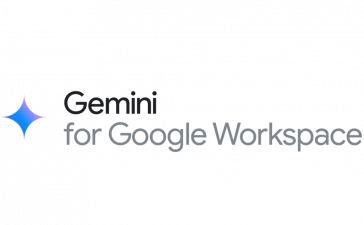The global artificial intelligence in drug discovery market has witnessed an astronomical surge, with its size reaching an estimated US$ 1,495.28 million in 2022 and projected to soar to a staggering US$ 14,518.68 million by 2032, boasting an impressive CAGR of 20.08% between 2022 and 2032.

AI Transforming Drug Discovery: A Paradigm Shift
The integration of AI solutions in the clinical trial process has emerged as a game-changer, addressing potential obstacles, slashing clinical trial cycle times, and enhancing productivity and accuracy. In the life sciences industry, the rapid adoption of advanced AI solutions in drug discovery processes has paved the way for groundbreaking developments, facilitating the identification of new compounds, therapeutic targets, and the creation of personalized medications.
AI’s Crucial Role in Drug Discovery Research
Traditionally, drug discovery involves identifying molecules that can specifically bind to a target molecule, often a disease-associated protein. The process includes large-scale screenings, followed by rounds of testing to identify promising compounds. However, the conventional approach can be costly and time-consuming, with the average cost of bringing a new drug to market reaching a staggering US$2.6 billion. The advent of AI systems has introduced unparalleled data processing capabilities to accelerate and optimize drug discovery, potentially reducing costs and increasing the efficiency of the entire process.
Driving Factors for AI in Drug Discovery
The prevalence of chronic diseases globally, with six out of ten adults in the United States suffering from such conditions, is propelling the demand for innovative solutions. AI platforms in drug discovery are becoming a feasible option for gaining insights into the development of medications to treat and mitigate the severity of various chronic diseases, thus driving market growth. The transformative potential of AI in shortening R&D schedules, making drug research more cost-effective, and increasing the likelihood of approval is further fueling the industry’s expansion.
Challenges in AI Adoption
While AI offers immense potential, the global healthcare sector faces challenges such as rising medicine and therapy costs. Access to extensive data is crucial for AI, but obtaining data from multiple providers can result in additional costs. Additionally, the lengthy and costly clinical trial process, coupled with the high failure rate of drug candidates, poses significant challenges.
Opportunities for Growth
Increased R&D activities and the widespread use of cloud-based services present lucrative opportunities for market growth. Despite initial skepticism, the AI business in biopharmaceuticals is experiencing a resurgence, marked by increased investments and collaborations between pharmaceutical companies and AI entities. The active participation of major pharmaceutical players in AI-related investments is significantly impacting the industry’s expansion, opening new avenues for growth.
The Impact of COVID-19 on AI in Drug Discovery
The COVID-19 pandemic has accelerated the adoption of AI in drug discovery. Organizations worldwide have relied on AI for the identification and screening of existing drugs for the treatment of COVID-19. AI’s ability to discover active substances has played a crucial role in addressing various diseases, making it a pivotal tool during the pandemic. The industry’s response to COVID-19 has showcased the potential of AI-based drug discovery to revolutionize healthcare solutions.
Segmental Outlook
The AI in drug discovery industry is segmented based on type, application, drug type, offering, technology, and end user. Key segments include preclinical and clinical testing, molecule screening, target identification, de novo drug design, and drug optimization. The oncology segment dominates the application sector, reflecting the increasing demand for effective cancer treatments. The technology segment, particularly deep learning, holds a significant share and is expected to grow at a rapid pace.
Regional Dynamics
North America leads the global AI in drug discovery market, driven by the presence of major pharmaceutical and biotechnology companies, robust R&D activities, and substantial investments. Asia Pacific, with a burgeoning demand for effective drug discovery solutions, is poised for significant growth, with several startups actively developing AI solutions for drug research.
Competitive Landscape
The competitive landscape is shaped by major players such as IBM, Microsoft, Atomwise Inc., Cloud Pharmaceuticals, Benevolent AI, and BIO AGE. Collaborations between technology companies and academic institutions are driving the widespread adoption of AI in pharmaceutical research.
Report Source: https://www.towardshealthcare.com/insights/artificial-intelligence-in-drug-discovery











